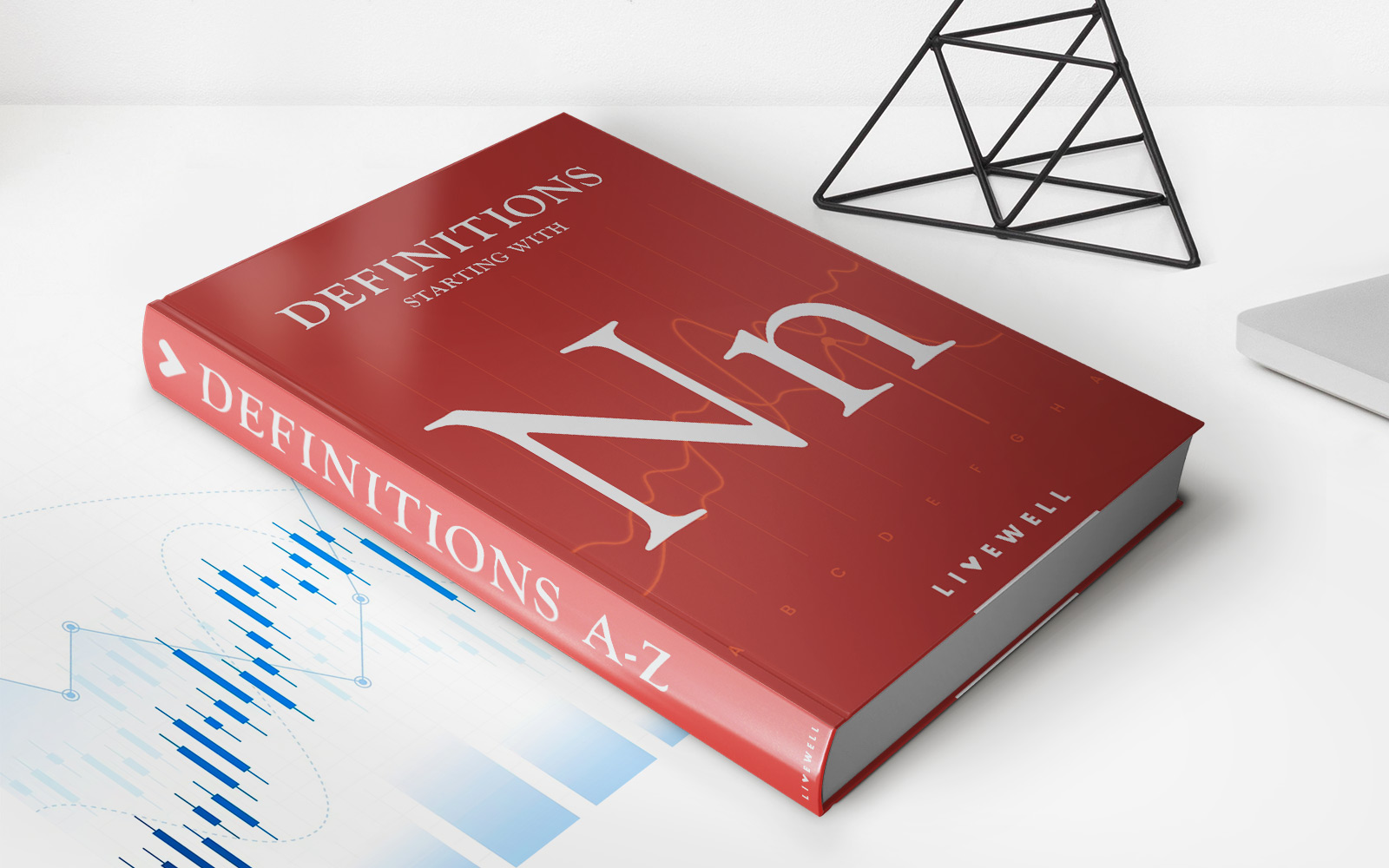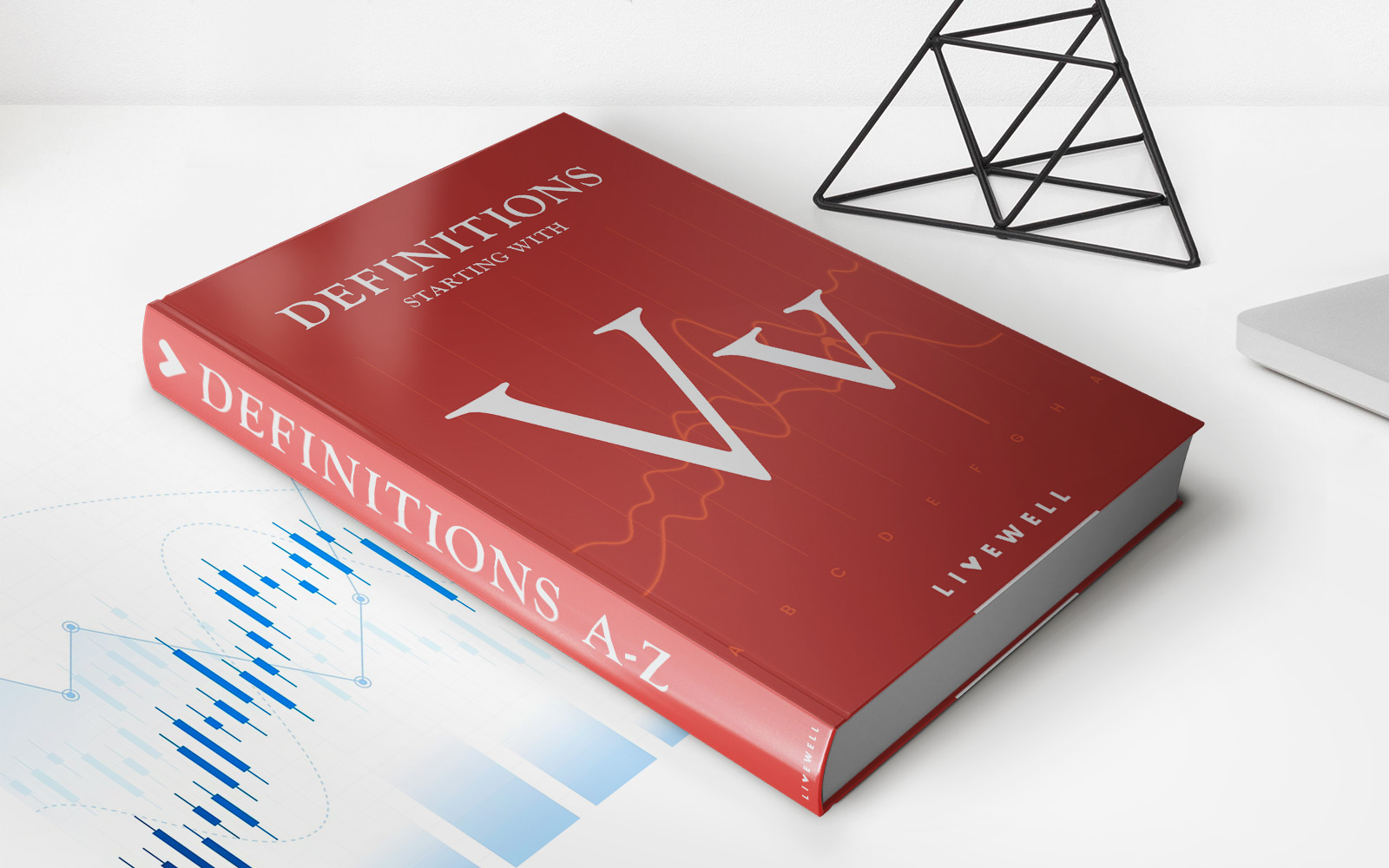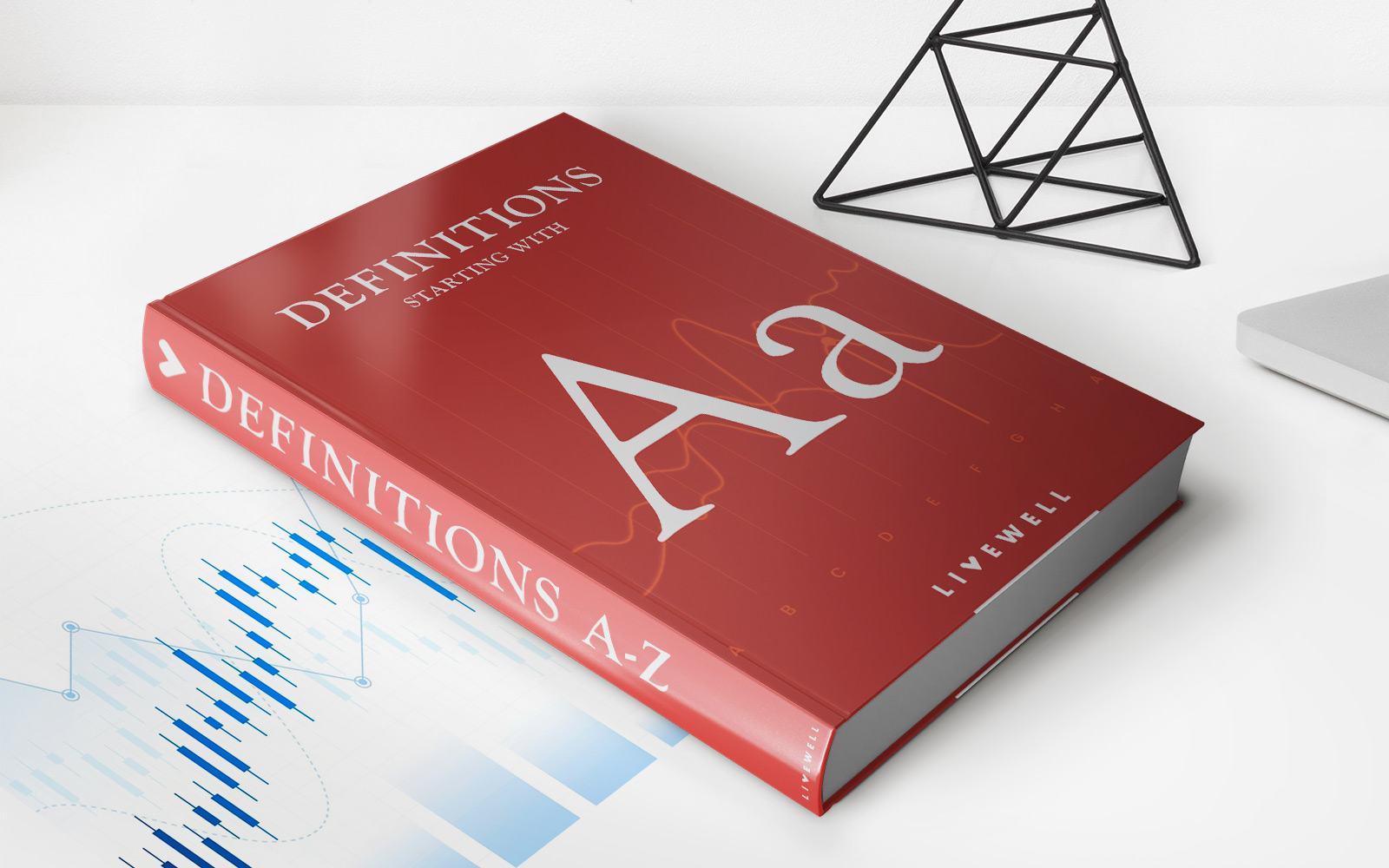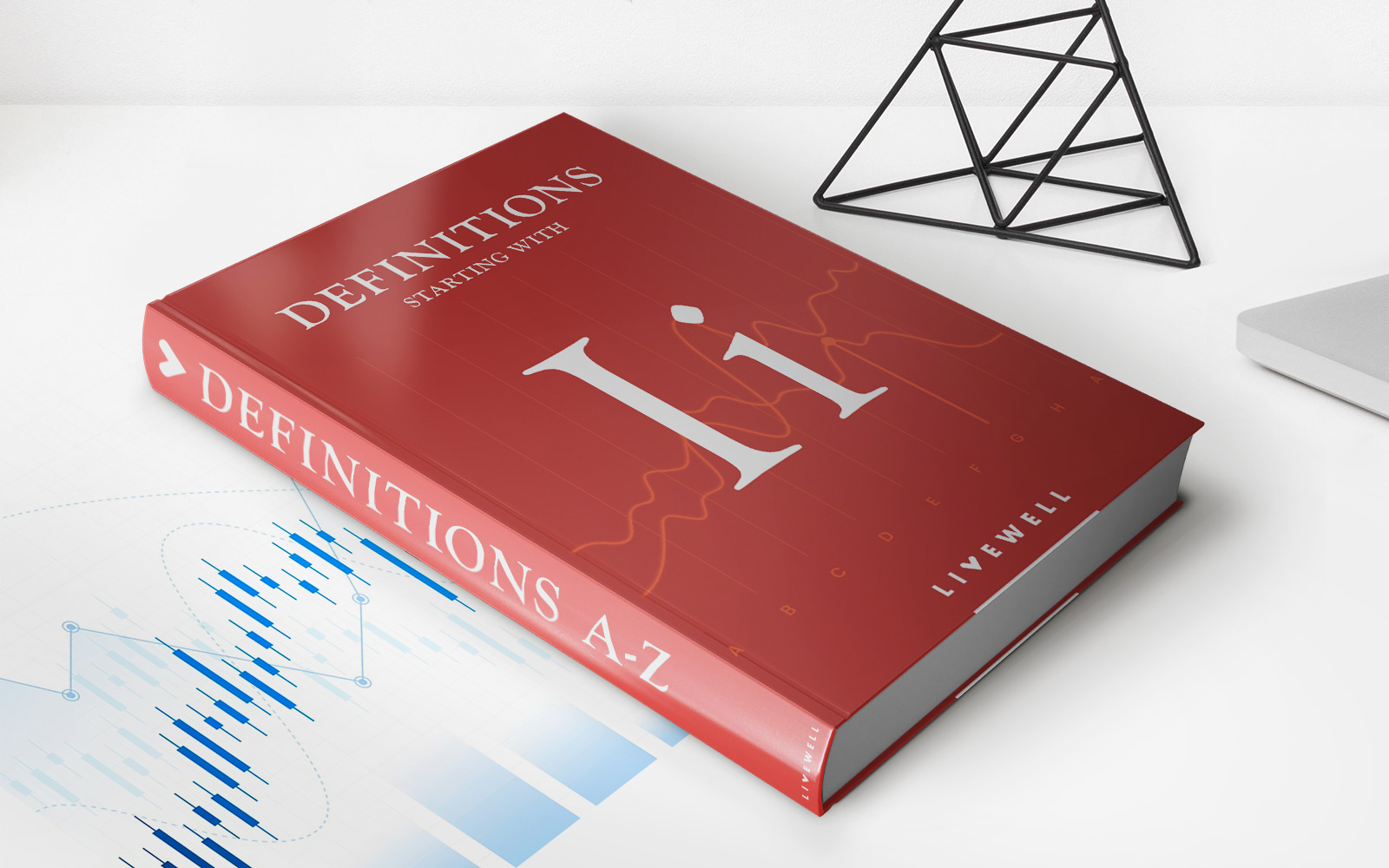

Finance
How To Report Foreign Pension Income On 1040
Published: November 27, 2023
Learn how to report foreign pension income on your 1040 form with this comprehensive finance guide. Ensure you meet IRS requirements and correctly report your earnings.
(Many of the links in this article redirect to a specific reviewed product. Your purchase of these products through affiliate links helps to generate commission for LiveWell, at no extra cost. Learn more)
Table of Contents
- Introduction
- Understanding Foreign Pension Income
- Determine if Foreign Pension Income is Taxable
- Reporting Foreign Pension Income on Form 1040
- Reporting Foreign Pension Income on Form 1040A or 1040EZ
- Claiming a Foreign Tax Credit
- Exclusions and Deductions for Foreign Pension Income
- Filing Requirements for Foreign Pension Income
- Avoiding Double Taxation on Foreign Pension Income
- Conclusion
Introduction
Welcome to the comprehensive guide on how to report foreign pension income on Form 1040. Many individuals work and retire abroad, and with the global economy becoming increasingly interconnected, it’s essential to understand the tax implications of receiving foreign pension income.
When it comes to taxes, reporting foreign pension income can be a complex process. Various factors need to be considered, such as the tax treaties between your home country and the foreign country where you receive the pension, as well as any applicable exclusions and deductions.
In this guide, we will walk you through the steps to determine if your foreign pension income is taxable, how to report it on Form 1040, and the various options available to mitigate double taxation. Whether you are a U.S. citizen receiving a pension from abroad or a foreign national living in the U.S. with a foreign pension, this guide will provide you with the necessary information to navigate the tax reporting requirements.
Please note that while we strive to provide accurate and up-to-date information, tax laws and regulations can change. Therefore, it is always advisable to consult with a qualified tax professional or refer to the IRS website for the latest guidelines specific to your situation.
Now, let’s dive into the details and demystify the process of reporting foreign pension income on Form 1040, so you can fulfill your tax obligations and avoid any potential penalties or issues with the IRS.
Understanding Foreign Pension Income
Foreign pension income refers to the payments received from a pension plan or retirement scheme in a foreign country. This can include government pension programs, employer-sponsored pensions, or individual retirement accounts (IRAs) from overseas. It is important to understand the nature of your foreign pension income to determine its taxability and reporting requirements.
One key factor to consider is whether the foreign pension is funded with pre-tax or after-tax contributions. Pre-tax contributions are made with income that has not yet been taxed, while after-tax contributions are made with income that has already been subject to taxation. The tax treatment of your foreign pension income may vary depending on this distinction.
Additionally, understanding the tax treaty between your home country and the country where the pension income originates is crucial. Tax treaties often have provisions regarding the taxation of pension income and may provide guidelines for determining the tax obligations in both countries.
Another essential aspect to consider is whether the country where the pension income originates taxes the payments at the source. Some countries may withhold taxes on pension payments, while others may not. In situations where taxes are withheld at the source, you may be eligible to claim a foreign tax credit to avoid double taxation.
It’s worth noting that each country has its own set of rules and regulations regarding pension income, and the tax treatment can vary significantly. Therefore, it is advisable to consult with a tax professional in both your home country and the foreign country where the pension income originates to fully understand the tax implications and reporting requirements.
Now that we have a basic understanding of foreign pension income, let’s move on to determining whether your foreign pension income is taxable in the United States.
Determine if Foreign Pension Income is Taxable
Whether your foreign pension income is taxable in the United States depends on several factors, including your tax residency status, the type of pension plan, and any applicable tax treaties between the United States and the country where the pension originates.
If you are a U.S. citizen or resident alien, you are generally subject to U.S. taxation on your worldwide income, including foreign pension income. This means that your foreign pension income will be taxable in the United States, unless there is a specific provision in a tax treaty that exempts or reduces the taxation of such income.
On the other hand, if you are a nonresident alien and do not meet the substantial presence test, your foreign pension income may be exempt from U.S. taxation. However, it is important to note that different rules apply to different types of pension plans.
For employer-sponsored pension plans, such as a foreign employer’s qualified retirement plan, the income is generally taxable in the United States, regardless of your residency status. This means that even if you are a nonresident alien, the income from an employer-sponsored pension plan will be subject to U.S. tax.
However, for individual retirement accounts (IRAs) or government pension plans, the taxability depends on whether the contributions were made with pre-tax or after-tax income. If the contributions were made with pre-tax income and you are a nonresident alien, the income from these plans will generally be taxable in the United States. If, on the other hand, the contributions were made with after-tax income, the income may be exempt from U.S. taxation, subject to the provisions of any applicable tax treaty.
It is crucial to review the specific provisions of the tax treaty between the United States and the country where the pension income originates to determine if there are any exemptions or reductions in tax liability. Tax treaties are designed to prevent double taxation and may contain provisions that determine the tax treatment of foreign pension income.
In summary, the taxability of foreign pension income in the United States depends on your tax residency status, the type of pension plan, and any applicable tax treaties. It is recommended to consult with a tax professional to determine the exact tax treatment of your foreign pension income and ensure compliance with U.S. tax laws.
Reporting Foreign Pension Income on Form 1040
When it comes to reporting your foreign pension income on your U.S. tax return, the primary form you will use is Form 1040. Here are the steps to accurately report your foreign pension income:
- Gather your income information: Collect all relevant documents that provide details of your foreign pension income. This may include Form 1099-R, statements from your pension provider, or any other documentation that shows the amount of income received.
- Convert foreign currency: If your foreign pension income is received in a currency other than U.S. dollars, you must convert it to U.S. dollars for reporting purposes. Use the exchange rate prevailing on the day you receive the income or use the annual average exchange rate, depending on the IRS guidelines.
- Report the income: On Form 1040, report your foreign pension income on line 16a, which is labeled “Pensions and Annuities.” This line captures the total amount of pension and annuity income. Enter the converted U.S. dollar amount of your foreign pension income in this line.
- Additional reporting: If you received a taxable pension, you will also need to report the taxable amount on line 16b of Form 1040. This is typically calculated based on the taxable portion of your pension, which is determined by the proportionality of your after-tax contributions to the total pension value.
- Foreign tax withholding: If taxes were withheld from your foreign pension income at the source, you may be eligible to claim a foreign tax credit to avoid double taxation. To claim this credit, complete Form 1116 and attach it to your Form 1040.
It is important to ensure that you accurately report your foreign pension income on your U.S. tax return to meet your tax obligations and avoid potential penalties or issues with the IRS. If you are unsure about any aspects of reporting foreign pension income, it is recommended to consult with a tax professional who specializes in international tax matters.
Reporting Foreign Pension Income on Form 1040A or 1040EZ
If you are eligible to use Form 1040A or Form 1040EZ for your U.S. tax return instead of Form 1040, the process for reporting foreign pension income is slightly different. Here are the steps to report your foreign pension income on Form 1040A or 1040EZ:
Form 1040A:
- Gather your income information: Collect all the necessary documentation that provides details of your foreign pension income, such as Form 1099-R or statements from your pension provider.
- Convert foreign currency: If your foreign pension income is received in a currency other than U.S. dollars, convert it to U.S. dollars using the exchange rate prevailing on the day you received the income or follow the IRS guidelines regarding the use of annual average exchange rates.
- Report the income: On Form 1040A, report your foreign pension income on line 11a, which is labeled “Pensions, Annuities, and IRAs.” Enter the converted U.S. dollar amount of your foreign pension income on this line.
- Additional reporting: If your pension income is taxable, report the taxable amount on line 11b of Form 1040A. Calculate the taxable portion based on the proportion of your after-tax contributions to the total pension value.
- Foreign tax withholding: If taxes were withheld from your foreign pension income at the source, you may be able to claim a foreign tax credit to avoid double taxation. Consult the instructions for Form 1040A to determine if you are eligible to claim the credit and follow the relevant guidelines.
Form 1040EZ:
Note that Form 1040EZ is the simplest tax form and has limited provisions for reporting various types of income. As a result, it may not accommodate the reporting of foreign pension income. In such cases, you will need to use Form 1040 or Form 1040A instead.
It is crucial to accurately report your foreign pension income on your U.S. tax return using the appropriate form to fulfill your tax obligations. If you are uncertain about which form to use or how to report your foreign pension income, it is advisable to consult with a tax professional.
Claiming a Foreign Tax Credit
If you have paid taxes on your foreign pension income to the country where it originates, you may be eligible to claim a foreign tax credit (FTC) on your U.S. tax return. The FTC is designed to prevent double taxation by allowing you to offset the U.S. tax liability on your foreign income with the taxes already paid to the foreign country.
To claim a foreign tax credit, follow these steps:
- Determine eligibility: You must meet certain criteria to be eligible for the foreign tax credit. Generally, the tax paid to the foreign country must be an income tax or a tax in lieu of an income tax. Additionally, the tax must be legally owed and actually paid.
- Complete Form 1116: To claim the foreign tax credit, you must complete Form 1116, which is used to calculate the credit amount. Provide the necessary information about your foreign pension income, including the amount of foreign tax paid and any applicable limitations or carryforward provisions.
- Attach Form 1116 to your tax return: Once you have completed Form 1116, attach it to your Form 1040, 1040A, or 1040NR (for nonresident aliens) tax return.
- Calculate the credit: Form 1116 will help you determine the amount of the credit you can claim. The credit is typically limited to the smaller of the foreign taxes paid or the U.S. tax liability on the foreign income. The remaining excess taxes paid can be carried forward for future use, subject to certain limitations.
- Report the credit: On your tax return, report the calculated foreign tax credit on the appropriate line. For Form 1040, report it on line 48, “Foreign tax credit.” For Form 1040A, report it on line 29, “Foreign tax credit.” Ensure that you accurately report the credit amount to reduce your U.S. tax liability.
Claiming a foreign tax credit can be a complex process, and it is crucial to follow the correct procedures and ensure accurate reporting to avoid any issues with the IRS. If you are unsure about claiming the foreign tax credit or want to maximize your eligible credit amount, it is advisable to consult with a tax professional who specializes in international tax matters.
Exclusions and Deductions for Foreign Pension Income
When it comes to reporting foreign pension income on your U.S. tax return, there are certain exclusions and deductions that may be available to reduce your taxable income. These exclusions and deductions can help minimize your tax liability and ensure you are not subjected to double taxation. Here are some important ones to consider:
Foreign Earned Income Exclusion (FEIE): If you meet certain requirements, you may be able to exclude a portion of your foreign pension income from your taxable income using the Foreign Earned Income Exclusion (FEIE). For the tax year 2021, the maximum exclusion amount is $108,700. To qualify for the FEIE, you must meet either the bona fide residence test or the physical presence test, which determine your status as a bona fide resident or the length of time spent in a foreign country, respectively.
Tax Treaty Provisions: Tax treaties between the United States and foreign countries often provide specific provisions for the taxation of pension income. These provisions may include exemptions or reduced tax rates for certain types of pensions. It’s important to review the specific tax treaty between your home country and the foreign country where your pension income originates to determine if any favorable provisions apply to your situation.
Itemized Deductions: Certain expenses related to earning your foreign pension income may be eligible for itemized deductions. This can include expenses such as investment advisory fees, legal fees, or other expenses directly related to managing or receiving your pension income. However, it’s important to consult with a tax professional to ensure that you meet the criteria for itemized deductions and accurately report these expenses on your tax return.
Medical Expenses Deduction: If you paid for medical expenses out of pocket, you may be eligible to deduct those expenses on your tax return, subject to certain limitations and requirements. This can include expenses for doctor visits, prescriptions, and medical treatments that are not covered by insurance. Again, it is advisable to consult with a tax professional to determine your eligibility for this deduction.
It’s important to note that eligibility for these exclusions and deductions may vary based on factors such as your tax residency status, the type of pension income, and the specific tax laws of the country where your pension originates. It is recommended to seek guidance from a tax professional who specializes in international taxation to understand the exclusion and deduction opportunities available to you and to ensure compliance with IRS regulations.
Filing Requirements for Foreign Pension Income
When it comes to filing your U.S. tax return, it’s important to understand the specific filing requirements for reporting foreign pension income. Here are some key considerations to keep in mind:
Tax Residency Status: Your tax residency status in the United States plays a crucial role in determining your filing requirements. If you are a U.S. citizen or resident alien, you are generally required to file a U.S. tax return and report your worldwide income, including foreign pension income. Nonresident aliens, on the other hand, may have different filing requirements based on their specific circumstances and the tax treaties between their home country and the United States.
Income Thresholds: The filing thresholds for reporting foreign pension income are typically the same as those for reporting other types of income. For tax year 2021, if you are a single filer under the age of 65, you generally need to file a tax return if your gross income exceeds $12,550. Married individuals filing jointly have a threshold of $25,100, while married individuals filing separately have a threshold of $5.
Form Selection: The form you use to report your foreign pension income will depend on your specific tax situation. U.S. citizens and resident aliens can use Form 1040 to report their worldwide income, including foreign pensions. Nonresident aliens may need to use Form 1040NR or a simplified version of the form, such as Form 1040NR-EZ. It’s important to select the correct form and follow the specific instructions for reporting your foreign pension income.
Additional Forms and Schedules: In addition to the main tax form, you may need to complete additional forms or schedules to accurately report your foreign pension income. This could include Form 1116 for claiming a foreign tax credit, Schedule B for reporting foreign bank accounts, or other forms depending on your specific situation. Be sure to review the IRS instructions and consult with a tax professional if you are unsure about the required forms.
Filing Deadlines: The filing deadline for U.S. tax returns is generally April 15th, but it can vary based on weekends and holidays. If you need additional time to file your return, you can request an extension until October 15th. However, it’s important to note that an extension to file does not extend the deadline for paying any taxes owed.
Compliance with the filing requirements for reporting foreign pension income is essential to avoid penalties and ensure you meet your tax obligations. It’s recommended to consult with a tax professional or refer to the IRS website for the most up-to-date guidelines that apply to your specific situation.
Avoiding Double Taxation on Foreign Pension Income
Double taxation, or being taxed on the same income by two different jurisdictions, is a concern many individuals face when receiving foreign pension income. However, there are several strategies and mechanisms available to help mitigate or eliminate double taxation. Here are some key methods to avoid double taxation on foreign pension income:
Tax Treaties: Tax treaties play a crucial role in preventing double taxation. These agreements between countries often contain provisions that determine the tax treatment of income, including foreign pension income. Tax treaties may provide for exemptions, reduced tax rates, or a tax credit mechanism to alleviate double taxation. It’s important to review the specific tax treaty between your home country and the country where your pension income originates to understand the provisions that apply to your situation.
Foreign Tax Credit (FTC): The foreign tax credit is a mechanism that allows you to offset your U.S. tax liability for the amount of income tax paid to a foreign country. By claiming a foreign tax credit, you can reduce or eliminate the double taxation on your foreign pension income. To claim the FTC, you must complete Form 1116 and calculate the credit based on the taxes paid to the foreign country. The credit is typically limited to the lesser of the foreign taxes paid or the U.S. tax liability on the foreign income.
Exclusions and Deductions: Certain exclusions and deductions may be available to reduce your taxable income from foreign pension sources. The Foreign Earned Income Exclusion (FEIE) allows you to exclude a portion of your foreign pension income from U.S. taxation if you meet specific requirements. Additionally, itemized deductions and other deductions may help reduce your taxable income, potentially lessening the impact of double taxation. Consult with a tax professional to understand the eligibility and limitations of these exclusions and deductions for your foreign pension income.
Claiming Refunds: Some countries allow for a refund of excess taxes withheld on pension payments. If you are subject to excessive withholding in the foreign country where your pension originates, you may be able to file for a refund directly with the foreign tax authority. This can help alleviate the impact of double taxation by reclaiming taxes overpaid.
It’s important to ensure proper coordination and documentation when managing your foreign pension income to avoid double taxation. Consulting with a tax professional who specializes in international taxation can provide valuable guidance and ensure compliance with both U.S. and foreign tax regulations.
Conclusion
Reporting foreign pension income on your U.S. tax return can be a complex process, but understanding the requirements and taking appropriate steps can help ensure compliance and minimize your tax liability. By following the guidelines outlined in this comprehensive guide, you can confidently navigate the reporting process and avoid potential issues with the IRS.
Start by understanding the nature of your foreign pension income and determining its taxability based on your tax residency status and any applicable tax treaties. Gather all relevant income information, convert the amounts to U.S. dollars if necessary, and report the income accurately on the appropriate tax form, such as Form 1040, 1040A, or 1040EZ.
Consider utilizing available exclusions, deductions, or tax treaty provisions to reduce your taxable income and avoid double taxation. The Foreign Earned Income Exclusion (FEIE), foreign tax credits (FTCs), and other deductions can be valuable strategies in minimizing your tax liability.
Adhering to the filing requirements specific to your situation and ensuring timely compliance with the deadlines is crucial. Be mindful of any additional forms or schedules that may be required to accurately report your foreign pension income. Seek professional advice when needed to ensure compliance with IRS regulations and maximize your tax benefits.
By proactively understanding the intricacies of reporting foreign pension income, you can fulfill your tax obligations while availing the benefits of various tax provisions and avoiding potential penalties. Remember to consult with a tax professional who specializes in international taxation to get personalized guidance based on your specific circumstances.
With proper knowledge and careful attention to detail, you can confidently report your foreign pension income and navigate the complexities of the tax system. Stay informed about any changes in tax laws and regulations, and always seek professional advice to ensure accuracy and compliance.














